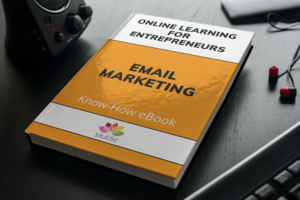Every day, internet users are bombarded with emails asking them to buy certain things or visit certain websites. Although these emails land in the inboxes of unsuspecting internet users every day, most of them are ignored. This is because emails that are blatant adverts are often considered spam.
The majority of Internet users have a low tolerance for spam. Reactions to spam usually range from simply ignoring the emails to reporting them to their ISP for further investigation. We know that many internet marketers find it difficult to make their email marketing unobtrusive.
In this article you will therefore find some helpful information on how you can organise your email marketing discreetly so that it is not perceived as spam.
One of the most important factors in ensuring that your email marketing is unobtrusive and not perceived as spam is to offer added value to recipients. This could be thought-provoking articles, fun quizzes or other relevant information that is useful to the target audience. If email consumers realise that an email they have received offers them something of value, such as knowledge or information about a particular niche topic, they are much more likely to read the email and spend time evaluating it because it is not seen as spam.
In addition to developing a text to convince recipients that the email is not spam, companies can also use it for discreet advertising. This could be, for example, mentioning products in publications or links to your website interspersed in the email. It is also possible to keep the advert unobtrusive by avoiding wording that makes outrageous claims.
Using superlatives and touting the superiority of certain products is likely to be perceived as exaggerated advertising. If this happens, the recipients of the email will not believe that the email is serious because they will think that the entire email is just a huge advert for your products or services.
Another way to keep advertising unobtrusive is to only send your emails to people who are genuinely interested in your products and services. This is very important because if email users receive an email that is in no way relevant to their interests, they are unlikely to take it seriously and may perceive it as pure advertising. However, if the email is only sent to people who share a common interest, it will appear more personalised. Understanding that the mention of products or services is occasionally necessary, the recipients of the email in this scenario are unlikely to see every product reference as marketing.
If the content of the email is designed as if it did not come directly from the entrepreneur, the email marketing remains subtle. It is possible that the text refers to the items and services as if they were being sold by a third party. As the advertising does not appear to come directly from the business owner, it appears more discreet.
Finally, keeping links to your own website to an absolute minimum can help ensure that your email marketing efforts are not perceived as heavy-handed advertising. Most internet users view links from one website to another as purely commercial. Therefore, it can be beneficial for business owners marketing an email campaign to keep links to a minimum and carefully weave them into even the most innocuous material. The links should be presented as if they are only intended to give you the opportunity to learn more about the products and not to persuade you to buy.
It might be worth hiring a copywriter with this experience to ensure that the text conveys the intended message and has the desired impact on the email's recipients.

